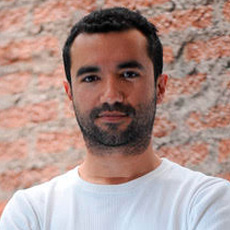EQUIPO
Somos un centro de investigación que permite la convergencia de distintas disciplinas y que tiene como principal propósito trabajar para que Chile tenga una educación inclusiva y de calidad.
Mauricio Salgado Oyarce
Línea de investigación: Desarrollo de Herramientas y Estrategias para una Educación Inclusiva

Escuela de Sociología,
Universidad Andrés Bello
Grados académicos:
- Sociólogo, Universidad Alberto Hurtado (Chile)
- Doctorado en Sociología, University of Surrey (Inglaterra)
Proyectos de investigación:
- Investigador Responsable, proyecto FONDECYT Regular (2016-2019): “Antecedentes Sociales del Comportamiento Moral: Expectativas, Decisiones y Principios Justificatorios” (Número 1161624). Universidad Andrés Bello, Chile.
- Investigador Responsable, proyecto CONICYT-PAI (2013-2015): “Preferencias Sociales y Desigualdad de Clases en Chile” (Número 82130019). Universidad Andrés Bello, Chile.
- Investigador Adjunto, proyecto Núcleo Milenio (2014-2017): “Models of Crisis: The Chilean Case” (NS130017). Universidad Adolfo Ibáñez, Chile.
- Investigador Postdoctoral, proyecto CONSOLIDER-INGENIO (2012-2013): “Social and environmental transitions: Simulating the past to understand human behaviour (SimulPast)”. Universitat Autònoma de Barcelona, España.
Publicaciones:
- Salgado, M. (2015). “The Evolution of Paternal Care Can Lead to Population Growth in Artificial Societies”. Journal of Theoretical Biology, Vol. 380, pp. 192 – 202. (ISI)
- Salgado, M., Marchione, E. & Gilbert, N. (2014). “Analysing Differential School Effectiveness Through Multilevel and Agent-Based Modelling”. The Journal of Artificial Societies and Social Simulation, Vol. 17(4). (ISI).
- Salgado, M. Noguera, J.A. & Miguel, J.F. (2014). “Modelling Cooperation Mechanisms: Some Conceptual Issues”. The Journal of Archaeological Method and Theory. Vol. 21(2), pp. 325-342. (ISI)
- Salgado, M. & Gilbert, N. (2013). “Emergence and Communication in Computational Sociology.” The Journal for The Theory of Social Behaviour, Vol. 43(1), pp. 87-110. (ISI)
- Hassan, S., Salgado, M. & Pavón, J. (2011). “Friendship Dynamics: Modelling Social Relationships Through a Fuzzy Agent-Based Simulation.” Discrete Dynamics in Nature and Society, Vol. 2011, pp. 1-19. (ISI)
Publicaciones no indexadas:
- Anzola, D., Johnson, P., Salgado, M. & Gilbert, N. (2016). “Sociology and Non-Equilibrium Social Science”. In Johnson, J., Nowak, A., Ormerod, P., Rosewell, B. & Zhang, Y-Ch. (Eds.), Non-Equilibrium Social Science and Policy. Springer, pp. 147-156.
- Salgado, M. & Gilbert, N. (2014). “Agent-Based Modelling”. In Teo, T. (Ed.), Handbook of Quantitative Methods for Educational Research. Rotterdam: Sense Publisher, pp. 247-265.







